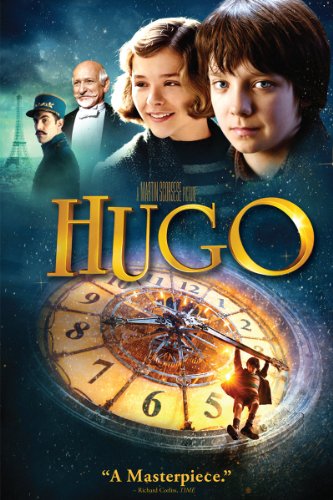All Nonfiction
- Bullying
- Books
- Academic
- Author Interviews
- Celebrity interviews
- College Articles
- College Essays
- Educator of the Year
- Heroes
- Interviews
- Memoir
- Personal Experience
- Sports
- Travel & Culture
All Opinions
- Bullying
- Current Events / Politics
- Discrimination
- Drugs / Alcohol / Smoking
- Entertainment / Celebrities
- Environment
- Love / Relationships
- Movies / Music / TV
- Pop Culture / Trends
- School / College
- Social Issues / Civics
- Spirituality / Religion
- Sports / Hobbies
All Hot Topics
- Bullying
- Community Service
- Environment
- Health
- Letters to the Editor
- Pride & Prejudice
- What Matters
- Back
Summer Guide
- Program Links
- Program Reviews
- Back
College Guide
- College Links
- College Reviews
- College Essays
- College Articles
- Back
Hugo MAG
“Hugo” is the story of an orphaned boy (Asa Butterfield) who lives hidden in a Parisian train station, fixing clocks, avoiding the station manager, and finding parts to repair an automaton left for him by his deceased father. When he meets a young, well-to-do girl (Chlöe Grace Moretz) who mysteriously possesses the key to his father's machine, they sets off a chain of events that will lead them on the adventure of a lifetime.
I wanted to see “Hugo” for several reasons. First, I had read its source – The Marvelous Invention of Hugo Cabret by Brian Selznick – in one sitting, and enjoyed it immensely. Second, I wanted to see how director Martin Scorsese (whose previous credits include dark, gritty films like “Taxi Driver” and “The Departed”) would pull off this family-friendly fantasy. I was pleased on both counts.
Selznick's novel translated wonderfully to the big screen. The book is artfully told in a collaboration of words and pictures, and Scorsese uses this almost as a plot device; many of the scenes contain surprisingly little dialogue but are filled with beautiful imagery – clock towers, train stations, and Parisian streets, for example.
Scorsese is also a superb director, making the audience empathize with even the most minor characters. I enjoyed how these characters were fleshed out. For example, the newspaper salesman (Richard Griffiths) and the café owner (Frances de la Tour) meet and fall in love, and their scenes are some of the best in the film, even though barely five lines of dialogue pass between them.
I would also like to compliment Scorsese on his mastery of 3-D. While many directors feel the need to up the thrill factor by constantly throwing things in the audience's face, Scorsese uses this technology to subtly enhance the film and draw the audience even further into its fantastical world.
I would recommend “Hugo” to any film buffs out there, as it is partially an homage to the work of famed early 20th century film titan George Méliès, who did more for special effects than even Steven Spielberg. In fact, the plot centers around his 1902 film, “A Trip to the Moon.” Even those who are not familiar with his work will cherish the scenes in which his surreal, dreamlike films are shown.
“Hugo” is a masterful film with prodigious acting, both new and old, wonderful imagery, and a touching story. Perfect for moviegoers of all ages.
Similar Articles
JOIN THE DISCUSSION
This article has 0 comments.

